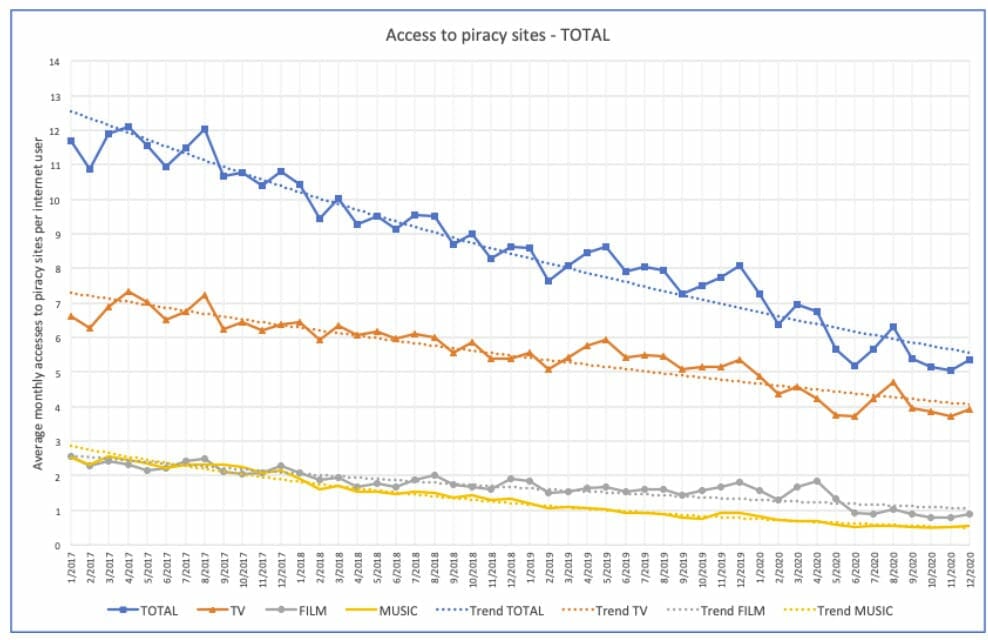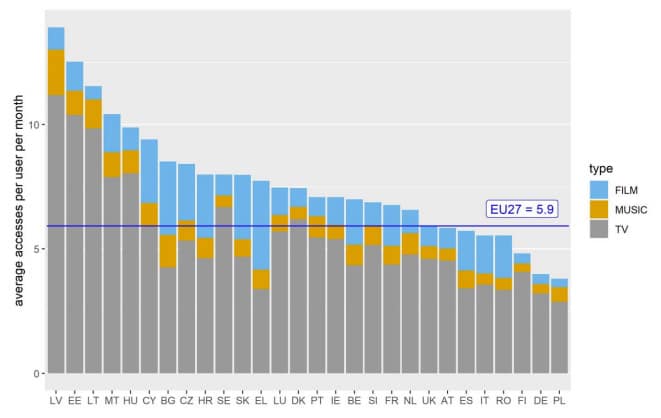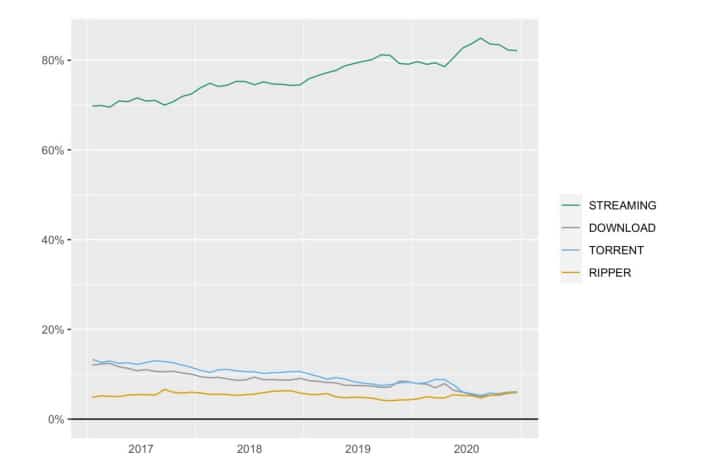–
The use of pirated films, series and music has been falling steadily since 2018. The wide range of streaming content is likely to have a direct impact on the illegal data business.
The European Intellectual Property Office (EUIPO or European Union Intellectual Property Office) recently published a study examining the piracy of television programs, music and films in Europe between January 2017 and December 2020. Several hacking methods such as streaming, downloading, torrenting and ripping have been put to the test on both mobile and desktop. The 28 Member States were examined with a total of 133 billion hits.

Media piracy has been falling steadily since 2018
Overall, it can be seen that piracy has declined for all types of content over this period, with the exception of a temporary recovery in film content in spring 2020, i.e. during the first lockdown of the Corona crisis (see figure above). In numbers, piracy decreased by 20% in 2018, 6% in 2019 and 34% in 2020. On average, European internet users accessed 5.9 pirated content per month in 2020.
There seems to be a visible link between the decline in piracy and the availability of legal offers. The study also found a connection between the proportion of young people (15 to 24 years of age) in the population and film piracy. The differences in the phenomenon of piracy observed from country to country can be explained by socio-economic factors such as income inequality and, of course, awareness of legal offers for consumers. This means that financially disadvantaged users resort to illegal offers more often, mainly at a young age.
Pirates are becoming more and more convenient
The use of illegal offers is quite high in the Baltic states of Latvia, Estonia and Lithuania (over 10 percent use the offer at least once a month). In penultimate place is Germany (around 4 percent). At the very least, Polish citizens take advantage of the offer of “free” music, films and TV broadcasts.

The “downloading” of films, music and series is on a downward path. While you used to proudly fill your hard drives with the latest entertainment (or the DVD folder), illegal streaming offers are the most popular now. In addition to the habit of being able to play everything back within a few seconds / clicks on the PC / smartphone / tablet, convenience also plays a major role. Who would like to wait 15 minutes for a film to be downloaded when they can see it on one of the relevant portals after a short advert? Because even illegal providers move with the times. 80 percent of pirated content is already being enjoyed via streaming portals.

–


